Las Vegas promoter gives inside look of the industry
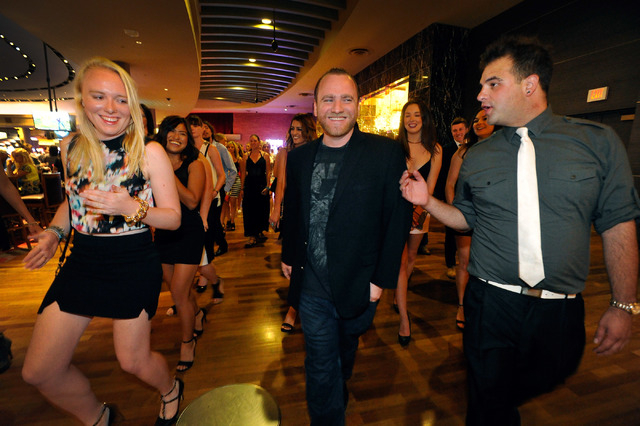
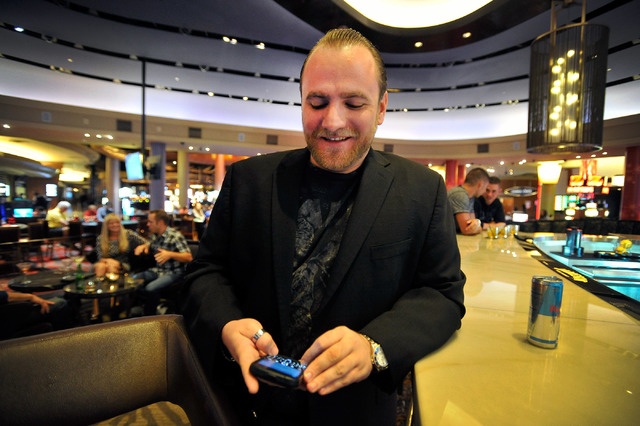
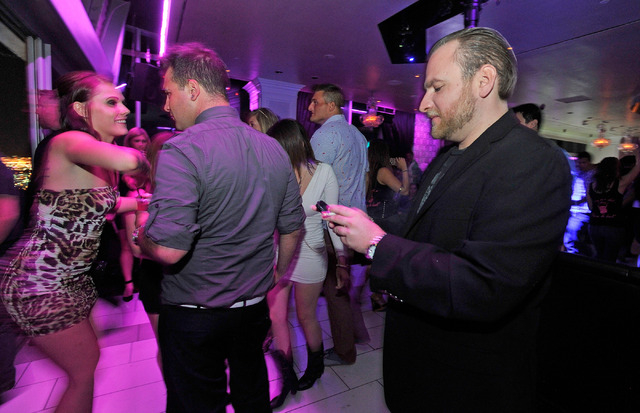
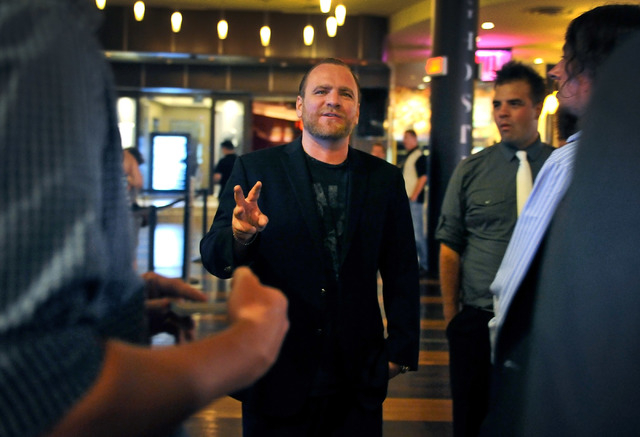
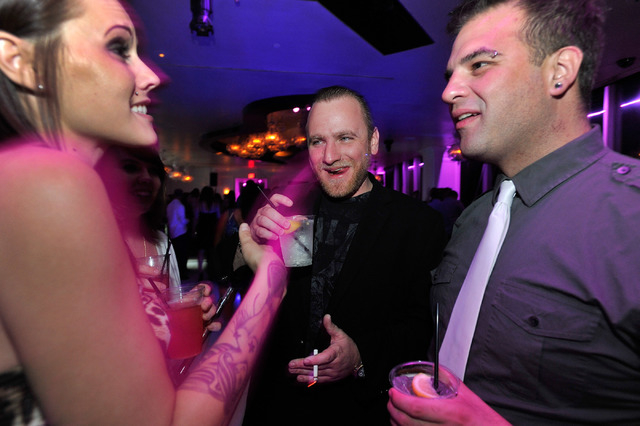
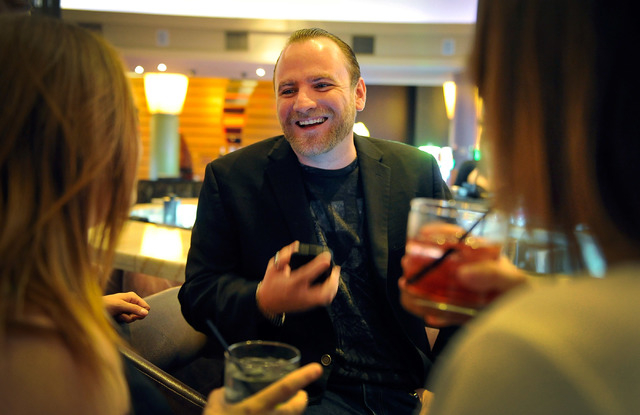

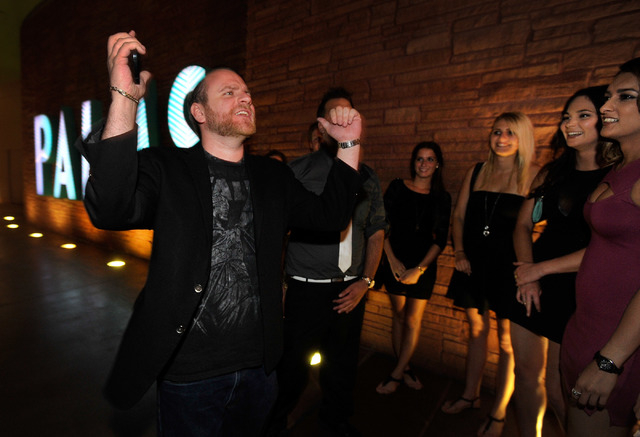
Standing outside Encore, club promoter Chris Hornak takes one last drag from his cigarette before flicking it to the ground.
Pulling his BlackBerry from his pocket, he sends a quick message to check on the status of the incoming group of 50 clients he has set up for an evening at the nightclub XS.
“They should be here in three minutes,” he says as he stares off into the distance waiting for their bus.
For the past seven years, Hornak has worked as a nightclub promoter at clubs such as Marquee at The Cosmopolitan of Las Vegas, XS at Encore and Ghostbar at Palms. More like an entertainment concierge, people seek Hornak out to organize outings at pool parties, nightclubs and strip clubs depending on his clients’ requests.
“It’s all about finding the balance,” Hornak says. “You have to try to find a hot event, but also don’t want to ruin someone’s night by having them wait in line for two hours.”
It’s about 10:30 p.m. on a Monday night, and Hornak welcomes another group of tourists ready for a night on the town.
“I’m from a small town in New Zealand,” one woman says. “I’ve never been to a club. I’m really excited.”
As the group unloads from the bus, Hornak organizes those who are shouting with anticipation. He puts the women in the front and the men in the back preparing for the short walk through the casino to the club.
“Hello, kids,” he says. “Who is ready for a fun night?”
Hornak entered the industry as a favor to his former roommate.
“I realized he was making more money than me,” he says. “So I decided to continue working in it.”
But beyond that, he likes the lifestyle of being a promoter
“It’s the only job where you can stay out late and drink with clients,” he adds.
His day starts closer to noon with a wake-up call of close to 200 emails, text messages and phone calls from hopefuls looking to go to the hottest club.
From there, he and his team set up the itinerary for groups. Hornak says he mostly works on groups of 20 or more.
Along with his website (christopherhornak.com), he does a little bit of promotion on social media.
However, his main sources of business are through his reputation and connections.
“I get a lot of referrals and repeat customers,” he says.
But when a promoter has been in the industry long enough, Hornak says he has the power to move people.
“To a club, a reputation is everything,” he says. “I know I have the power to pack out a club.”
Busy season usually lasts July through September.
“I always forget how busy the busy season is and how slow the slow season can be,” he says. “I always make sure to save up (money) for the winter.”
Although he has a lot of fun interacting with people, some days it’s not all good experiences.
“People can be cruel,” he says. “You are dealing with a lot of drunk people who will call you the worst names. You can’t take it personally.”
As a form of advertising, clubs enlist the help of promoters to give a face-to-face recommendation on the venue. Although Hornak is more freelance and works in conjunction with venues, most clubs have an entourage of promoters.
“You have the power to sell a person on a club,” says Jamaal Rouzan, who has been in the industry for eight years. “You can convince someone that you have a better product just by your language. You can say something like, ‘Come check out this club,’ versus, ‘You have to come meet me at this club because we are going to have such a great time.’ You make people feel like they are a part of something.”
Hornak says the industry has changed since he began.
“Back then, there was less than 100 (promoters),” he says. “Now there are a thousand. We are saturated with promoters. Most aren’t in it for the money. Most are in it for the party lifestyle.”
Scanning through the Craigslist ads, posts encourage people to apply to become a promoter.
Job listings say promoters can make $150 to $500 a night.
“It’s very possible to make that much money,” Rouzan says. “I’ve made up to $2,000. It just depends on the club, too. Some say if you bring in a certain number of girls, like 25 girls, you get a $200 bonus. So you go out and you fight to make that number.”
He adds he was surprised when he realized the potential for how much money he could make.
But there is a certain amount of instability, especially if people don’t show up.
“Sometimes, it’s hard to plan how much you’ll make,” he notes.
Hornak knows that club promoters have a sullied reputation.
“There are a lot of negative connotations with being a promoter,” he says. “I can’t tell you how often people ask me to help them find drugs.”
Hornak says he dismisses people who ask for things such as drugs.
Beyond these misconceptions, he says there are instances in which people are discriminated against based on their appearance.
A promoter from Hakkasan Group was suspended after his conversation with a client went viral.
Some of his comments included: “We’re not gonna give comped tables to random girls. … Then the club will be filled with hippos.”
“It’s a shallow industry,” Rouzan says. “It’s unfortunate.”
He adds that when one club turns away a customer because of discrimination, other clubs are more than willing to take in the business.
Hornak says he doesn’t agree with this mindset of promoters, such as the one at Hakkasan.
“People are spending money regardless of what they look like,” he says. “It’s stupid to try to exclude them. ”
He adds that thought pattern is becoming all too prevalent in the industry.
“(Promoters) are starting to think they are better than other people,” Hornak says. “I wish it was a friendlier industry. But everyone is working to get a quick leg up.”
Rouzan adds there is a certain amount of accountability to keep promoters from being disrespectful.
“It just depends on who the promoter is,” he says. “If he is higher up, he might just get a slap on the wrist because he makes the club money.”
Hakkasan Group, Marquee, Ghostbar and XS declined to comment on the hiring practices for promoters or how they are kept accountable.
Despite the challenges a promoter has, Hornak says he does what he does because he likes customer service.
“In other sales positions, the better I do the worse it probably is for a client,” he says. “If I were a car salesman, I would get a higher commission from the more you pay. (Being a club promoter) is the only position where it’s a win-win business model. The club gets packed plus the people get in.”
Even for a Monday night, XS is starting to get a line by 11 p.m.
One by one IDs are checked and wrists are stamped as the partygoers fall into line at the entrance of the club.
Hornak brings his first group up to the front. He wants all of them to be checked in before the group enters the club as one big herd.
Once his people are in, Hornak sticks around for a drink or two and mingles with the clients.
By midnight, the dance floor is overflowing, but Hornak isn’t one of them. Now that his clients are in, Hornak will have a few drinks with them, then head home.
“I usually keep my phone on until 3 a.m. or 4 a.m. to make sure everything is OK,” he says.
Depending on the group, some people already have transportation pre-arranged while others choose to find their own way back to their hotels.
As he heads to the door, another person invites him to the dance floor.
“I’ll see you out there later,” Hornak says, walking away.
He never makes it, though.
“It’s time to dip out and go home,” he says. “Then tomorrow I do it all over again.”
Contact reporter Michael Lyle at mlyle@reviewjournal.com or 702-387-5201. Find him on Twitter: @mjlyle.












